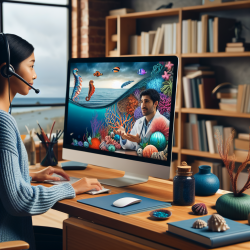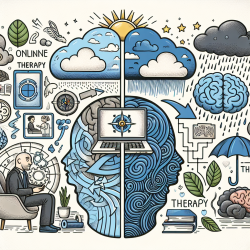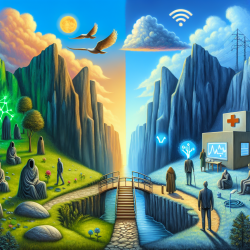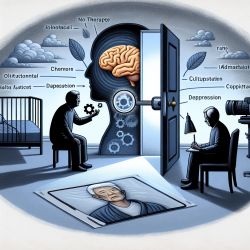Enhancing Online Therapy Practices: Insights from Marine Biodiversity Conservation

Marine biodiversity and ecosystem conservation may seem distant from the realm of online therapy services, but the principles and strategies outlined in the research paper "Safeguarding marine life: conservation of biodiversity and ecosystems" can provide valuable insights for practitioners in the field of online therapy. This blog will explore how the outcomes of this research can help improve practitioner skills and encourage further research in the domain of online therapy services.
Integrative and Adaptive Management
The research emphasizes the importance of integrative and adaptive management for safeguarding marine ecosystems. Similarly, online therapy practitioners can benefit from adopting an integrative approach that considers the various factors influencing a student's mental health and educational progress. This involves collaborating with educators, parents, and other stakeholders to create a comprehensive support system for students.
- Collaborate with educators to understand the academic challenges faced by students.
- Engage with parents to gain insights into the home environment and its impact on the student's well-being.
- Work with other healthcare professionals to address any underlying health issues affecting the student's performance.
Adaptive management, as discussed in the research, involves continuously monitoring and adjusting strategies based on new information and changing circumstances. For online therapy practitioners, this means regularly assessing the effectiveness of therapeutic interventions and making necessary adjustments to better meet the needs of students.
Building Social Connections
The research highlights the role of social impetus in driving conservation efforts. In the context of online therapy, fostering social connections can significantly enhance the effectiveness of therapeutic interventions. Building a strong rapport with students and creating a supportive online community can help students feel more comfortable and engaged in therapy sessions.
- Use interactive tools and activities to create a sense of community among students.
- Encourage peer support by facilitating group therapy sessions or online forums where students can share their experiences and support each other.
- Maintain regular communication with students to build trust and ensure they feel supported.
Utilizing Technology for Monitoring and Evaluation
The research underscores the importance of utilizing technology for monitoring and evaluating conservation efforts. Similarly, online therapy practitioners can leverage technology to track student progress and evaluate the effectiveness of therapeutic interventions.
- Use digital tools to monitor student attendance and participation in therapy sessions.
- Implement online assessments to evaluate the progress and effectiveness of interventions.
- Utilize data analytics to identify trends and patterns in student behavior and adjust strategies accordingly.
Encouraging Further Research
The research paper emphasizes the need for continuous research to inform and improve conservation strategies. Online therapy practitioners should also be encouraged to engage in ongoing research to enhance their practices and stay updated with the latest developments in the field.
- Participate in professional development programs and workshops to stay informed about new research and best practices.
- Collaborate with academic institutions to conduct research on the effectiveness of online therapy interventions.
- Share findings and insights with the broader professional community through publications and conferences.
Conclusion
The principles and strategies outlined in the research paper "Safeguarding marine life: conservation of biodiversity and ecosystems" offer valuable insights that can be applied to the field of online therapy. By adopting integrative and adaptive management practices, fostering social connections, utilizing technology for monitoring and evaluation, and encouraging further research, online therapy practitioners can enhance their skills and improve the effectiveness of their interventions.To read the original research paper, please follow this link:
Safeguarding marine life: conservation of biodiversity and ecosystems.
Citation: Ward, D., Melbourne-Thomas, J., Pecl, G. T., Evans, K., Green, M., McCormack, P. C., Novaglio, C., Trebilco, R., Bax, N., Brasier, M. J., Cavan, E. L., Edgar, G., Hunt, H. L., Jansen, J., Jones, R., Lea, M.-A., Makomere, R., Mull, C., Semmens, J. M., Shaw, J., Tinch, D., van Steveninck, T. J., & Layton, C. (2022). Safeguarding marine life: conservation of biodiversity and ecosystems. Reviews in Fish Biology and Fisheries, 32(1), 65-100. https://doi.org/10.1007/s11160-022-09700-3










